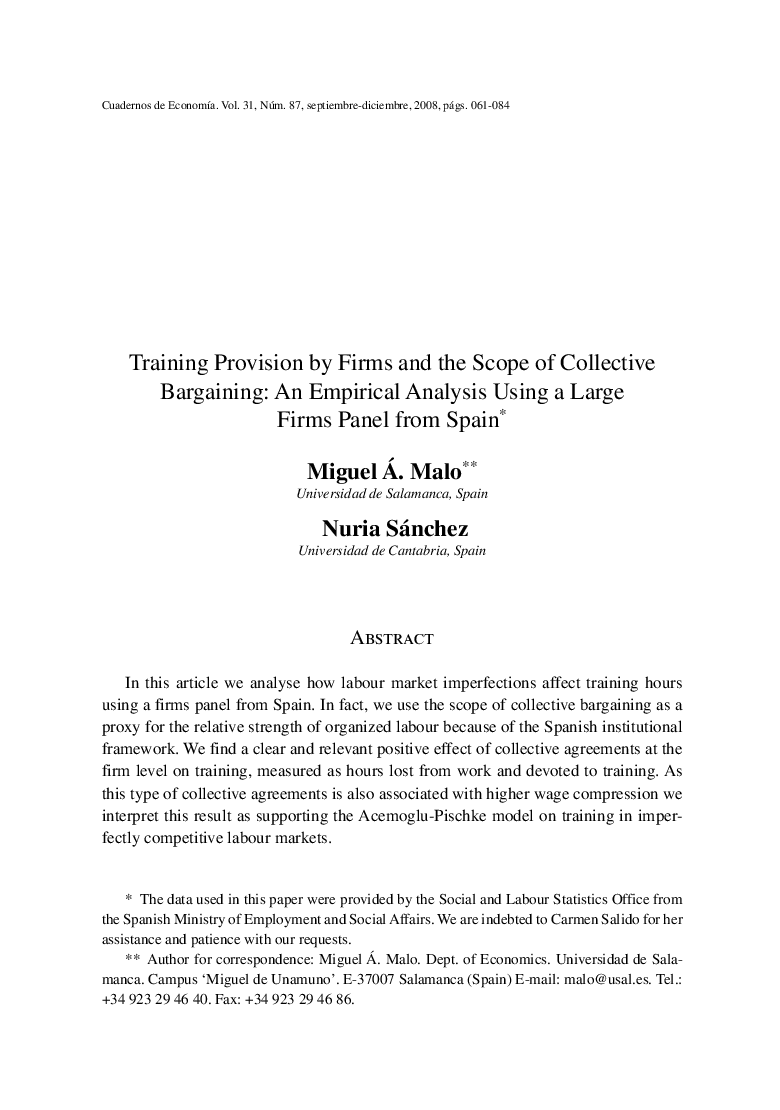| Article ID | Journal | Published Year | Pages | File Type |
|---|---|---|---|---|
| 7343477 | Cuadernos de Economía | 2008 | 24 Pages |
Abstract
In this article we analyse how labour market imperfections affect training hours using a firms panel from Spain. In fact, we use the scope of collective bargaining as a proxy for the relative strength of organized labour because of the Spanish institutional framework. We find a clear and relevant positive effect of collective agreements at the firm level on training, measured as hours lost from work and devoted to training. As this type of collective agreements is also associated with higher wage compression we interpret this result as supporting the Acemoglu-Pischke model on training in imperfectly competitive labour markets.
Keywords
Related Topics
Social Sciences and Humanities
Economics, Econometrics and Finance
Economics and Econometrics
Authors
Miguel Á. Malo, Nuria Sánchez,
